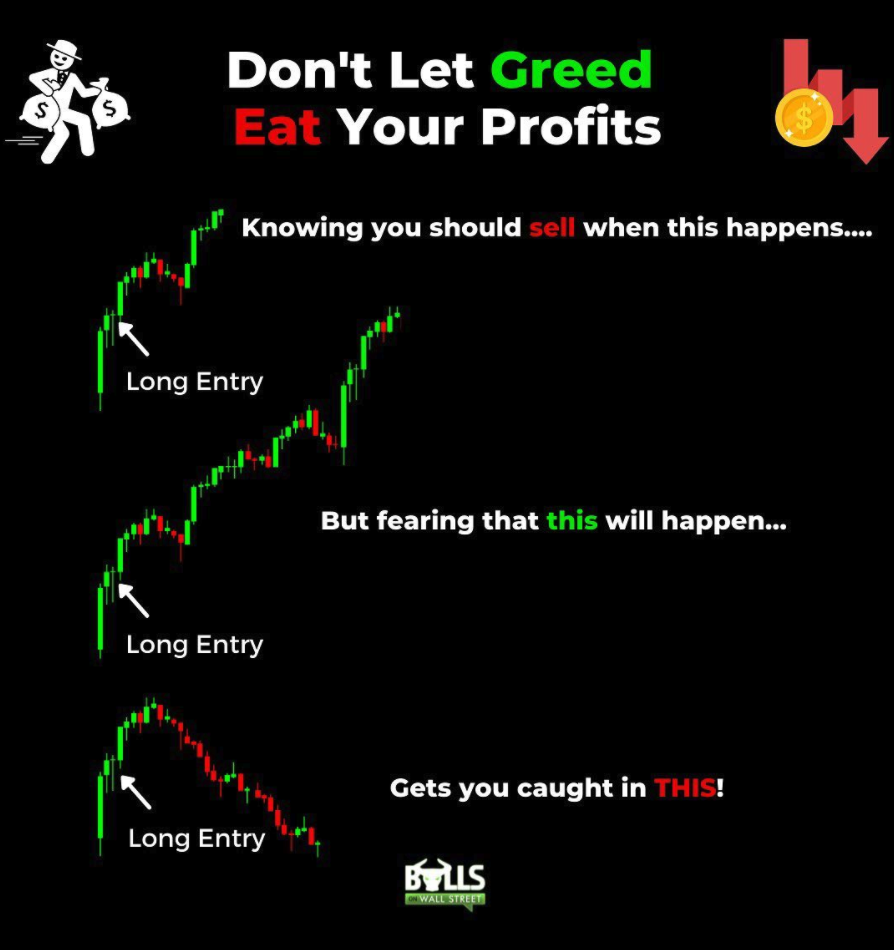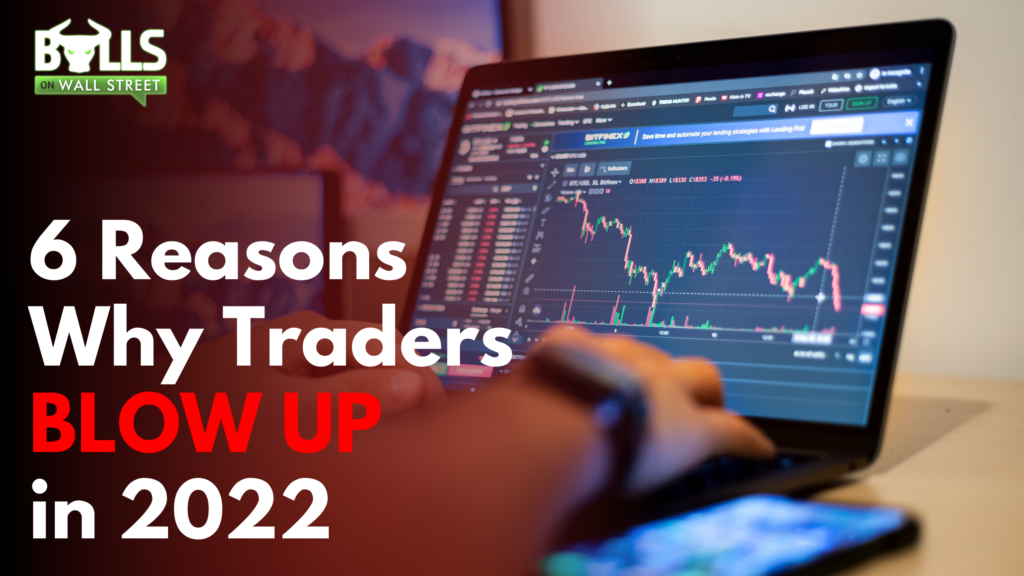Account blow-ups can happen to any trader of any experience level. Not going to sugarcoat it: It’s one of the most demoralizing experiences you can have. Losing all of your money in your trading account.
I blew up my account 3 times before I found Bulls on Wall Street and learned a real trading process! Consistently profiting from the markets is one of the hardest endeavors you will ever face.
This year in particular, the downtrending market conditions has caused the majority of traders and investors huge headaches. Many retail traders who made a killing last year and in 2020 lost everything this year.
If you know what causes account blow-ups, you can significantly decrease the probability of it happening to you again, and increase the probability of you becoming a consistently profitable trader.
Learn these 6 causes of account blow-ups this year to preserve your precious capital:
1. Over-Leveraged
Leverage can be your best friend or your worst enemy in trading. For most new traders, it’s their worst enemy. Leverage is simply borrowing money from your broker to buy or short-sell more stock. When used correctly, it can increase the size of your winning trades. When used incorrectly, it can significantly increase the size of your losing trades. And most traders use it incorrectly and use it to average down on a losing trend. They end up blowing up, and worse, go into debt to their broker.
It can happen to anyone who is careless, no matter how many years of trading experience you have or how much money you’ve made. Never risk more than 1-2% of your trading capital on 1 trade when you are new, and do not have a proven track record in the markets.
2. Stubbornness
Stubbornness is one of the worst traits for a trader. Attachment to your opinions is one of the most common causes of account blow-ups. It’s most often the smartest people who have done the most research on a company that fall victim to this. They refuse to believe that the market’s opinion is correct and don’t liquidate their position before the loss consumes their trading account.
Remember, as a trader, your goal is to make money, not to be right on every trade. “Markets can stay irrational longer than you can stay solvent”. Sound risk management prevents stubbornness from consuming your trading account. Check out this video lesson to learn how to manage risk correctly in the current market conditions:
3.No Stop Loss Strategy
“I just froze”. “I thought it would come back”. “It’s not a loss until you sell”. Most new traders make the mistake of assuming that every trade they put on will be a winner. They fail to prepare for the scenario of their trade becoming a loser. As a result, they don’t keep their losing trades small, and eventually, lose all of their money. Stop losses are not optional. No trading strategy has a 100% win rate. You need to have an exit strategy in the event a trade goes against you. For some of our favorite stop-loss strategies, check out this article here.
4. Greed
Everyone heard the phrase “to the moon” over and over again last year. This is exactly the type of greed that causes profits in winning trades to evaporate, and eventually lead to account blow-ups:

Stop expecting every trade to be a home run. Stop turning your day trades into swing trades, and your swing trades into long-term investments. Understand how stocks move (we teach this in our Live Trading Boot Camp), and you will know the high probability areas to take profits on a stock so it doesn’t reverse into breakeven or a loss.
5. Revenge Trading
Traders when they lose control give back weeks and months’ worth of gains after just a few hours of revenge trading. It is natural to make back the money you just lost. But you cannot force trades on subpar setups. Traders are at their most vulnerable right after a losing trade, as they often get emotional.
6. No Trading Edge
Most of the retail traders who made money in the past couple years, and then gave it all back were gamblers, not traders. This means they had no trading edge, no system. They just
If you need help building your trading edge and your trading business plan, make sure to apply for our next Live Trading Boot Camp starting in just 4 days!
Join Our Next Live Trading Boot Camp: Learn How We Trade These Stocks
If you are serious about becoming a full-time or part-time trader this year, apply to see if you qualify for our next boot camp. Limited seating.



